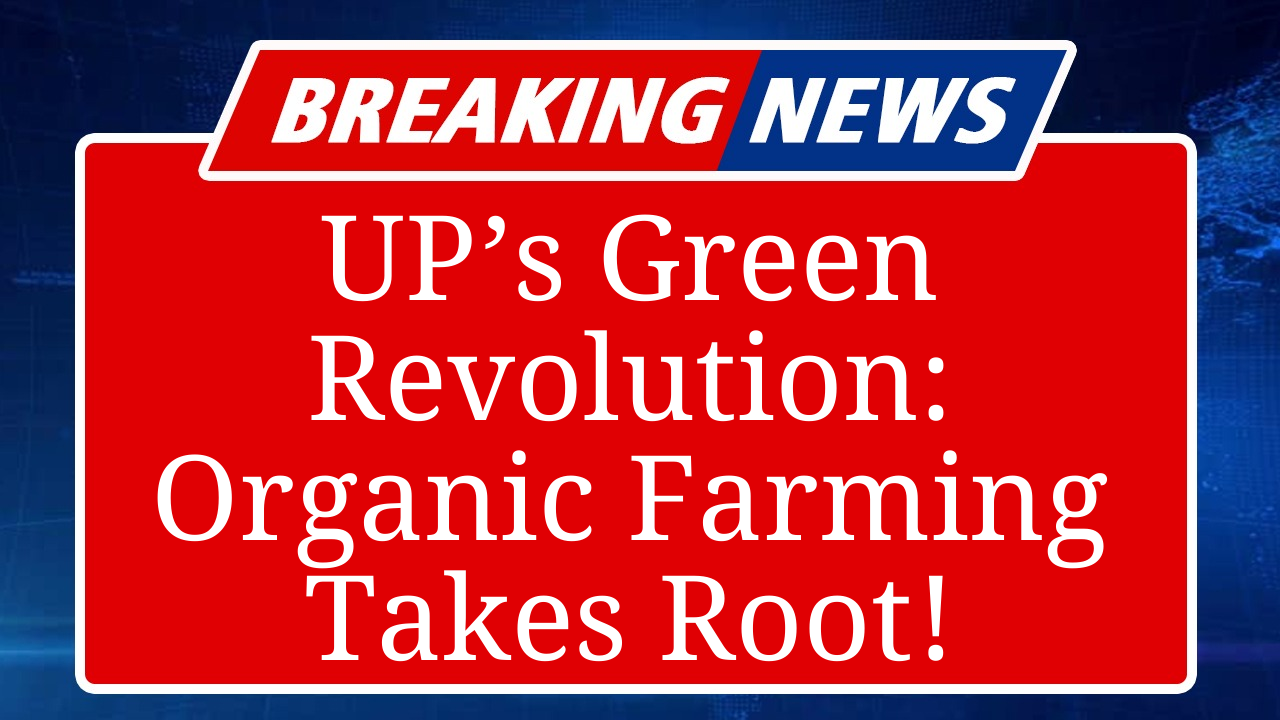“Uttar Pradesh is scaling up its organic farming efforts with a robust certification plan under the National Programme for Organic Production (NPOP) and PGS-India. Targeting over 10 lakh hectares, the state aims to certify thousands of farmers, enhance soil health, and tap into global organic markets, fostering sustainable agriculture and economic growth.”
Uttar Pradesh Pioneers Organic Farming with Bold Certification Drive
Uttar Pradesh, India’s agricultural powerhouse, is making significant strides in promoting green farming through an ambitious organic certification plan. Under the aegis of the National Programme for Organic Production (NPOP) and the Participatory Guarantee System (PGS-India), the state is targeting to bring over 10 lakh hectares under organic certification by 2027. This initiative aligns with the state’s broader goal of fostering sustainable agriculture, improving soil health, and boosting farmers’ incomes through access to premium organic markets.
The Uttar Pradesh government, in collaboration with the Agricultural and Processed Food Products Export Development Authority (APEDA) and the National Centre of Organic Farming (NCOF), has rolled out a comprehensive strategy to certify farmers across districts. As of August 2025, the state has already certified 2.5 lakh hectares under organic farming, placing it among the top 10 states in India for organic cultivation, according to APEDA data. Madhya Pradesh leads with 5.39 million hectares, followed by Maharashtra and Gujarat, but UP’s rapid progress signals its potential to climb the ranks.
The certification process involves strict adherence to NPOP standards, which prohibit synthetic fertilizers, pesticides, and genetically modified organisms (GMOs). Farmers must undergo a conversion period—typically two years for annual crops and three for perennials—during which they transition from conventional to organic practices. This includes using organic seeds, bio-fertilizers, and natural pest control methods like vermicomposting and crop rotation. The state has set up 1,200 cluster-based organic farming groups, each comprising at least 20 farmers, under the Paramparagat Krishi Vikas Yojana (PKVY). These clusters receive financial assistance of Rs. 50,000 per hectare over three years, with 62% allocated for organic inputs, as per the Ministry of Agriculture and Farmers Welfare.
PGS-India, a community-driven certification system, has gained traction in UP, especially for small and marginal farmers who constitute 80% of the state’s agricultural workforce. Unlike third-party certification, PGS relies on peer reviews within local farmer groups, reducing costs and documentation burdens. As of March 2025, over 50,000 farmers in UP are registered under PGS-India, with 1,500 local groups certified, according to NCOF. The Jaivik Bharat logo, issued post-certification, enhances market credibility, enabling farmers to fetch premium prices domestically and in export markets like the USA, EU, and Canada.
The state’s organic push is also driven by schemes like the Mission Organic Value Chain Development for North Eastern Region (MOVCD-NER), extended to UP, which provides end-to-end support from seed procurement to marketing. In 2024-25, UP exported organic products worth Rs. 750 crore, including cereals, pulses, and medicinal plants, a 15% increase from the previous year, per APEDA’s latest figures. Districts like Varanasi, Gorakhpur, and Lucknow are emerging as organic hubs, with training programs conducted by Krishi Vigyan Kendras (KVKs) and NGOs like GREEN Foundation.
Challenges remain, including the high cost of certification—ranging from Rs. 25,000 to Rs. 1 lakh per farmer, depending on the agency—and the initial yield dip during the conversion period. To address this, the state has partnered with NABARD to offer subsidized loans and is promoting agri-tech innovations for soil health monitoring. The Uttar Pradesh Organic Products Council is also streamlining certification processes and organizing exposure visits to successful organic farms in Sikkim and Uttarakhand.
Market linkages are being strengthened through the Jaivik Kheti portal, connecting farmers directly with buyers. In 2025, UP hosted 15 organic fairs and exhibitions, boosting visibility for certified produce. The state’s focus on biodiversity preservation and reduced chemical runoff aligns with global sustainability goals, positioning UP as a key player in India’s organic revolution, which now spans 10.17 million hectares nationwide, as per APEDA’s 2023 data.
Disclaimer: This article is based on information sourced from government reports, APEDA, NCOF, and recent agricultural data available on the web. The figures and initiatives mentioned are accurate as of September 2025, but policies and data may evolve. Readers are advised to verify details with official sources before making decisions.

